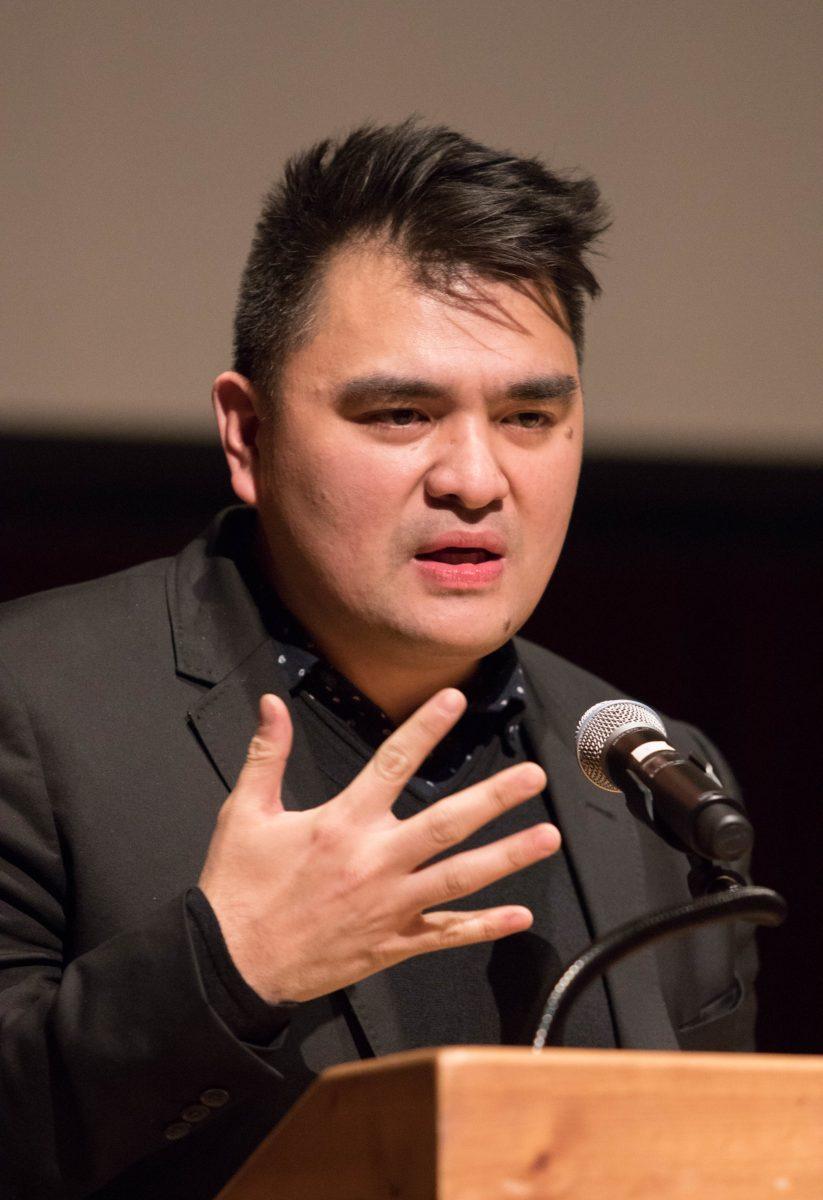Jose Antonio Vargas finds it crucial to look to the past, in order to think critically on the topic of immigration and citizenship today. “Documented,” a film for CNN, was directed by Vargas, a Pulitzer Prize Winner. He is the founder and CEO of Define America and continues advocating for undocumented people.
“The question is way beyond immigration, I think the question before us is citizenship. In 1790 the only people who could become U.S. citizens were free, white men of moral character,” Vargas said. “We did not give Native American citizenship rights until 1924. The Black Lives Matter movement, in many ways, is a question of citizenship; not citizenship of paper, but citizenship of dignity.”
Vargas spoke Sunday at the Green Music Center. This was the first time Vargas had spoken since the inauguration of Trump.
It involved speakers like Mariana. Martinez, Santa Rosa Junior College Board of Trustee, research coordinator for the McNair Scholars Program at Sonoma State and faculty advisor from the Undocu-Scholars Coalition; as well as a question and answer with the audience, and on-stage, between professor Daniel Malpica of Chicano and Latino studies and Christopher Kerosky founder of North Bay Dreamers Foundation.
Vargas also showed the audience four videos that had been produced via Define American which highlighted different topics of those who are undocumented.
Undocumented students and people is a sensitive discussion within society.
Yet, Vargas calls himself an optimist. He explained that traditionally the topic at hand can be tragic, but in his Define American videos he tries to bring out the smile in people.
“Keep fighting. There’s a lot of courage that comes when we have fear. The most important thing is to stay positive in the midst of chaos,” said Chicano and Latino studies major Evelin Sustaita.
Junior transfers student Moises De Leon shared similar support for undocumented students.
“In a moment of darkness there is always a dawn. Have hope because dawn is coming. That dawn is reward for all the effort we put into this,” De Leon said.
Vargas shared a moment from about six years ago, when he was deciding to stay in the country or leave. He took a leap of faith and decided make public, the fact that he was undocumented.
“Stay and challenge the system…It’s not just a Mexican latino issue,” Vargas said.
“Our work is based on the belief that you cannot change the politics of immigration, unless you change the culture and talk about immigrants,” said Vargas. “We are so obsessed with calling people illegal and obsessing over our border that we are not asking the harder questions to get to the greater truth.”
“I would be lying if I didn’t tell you that the state of panic is not only deep and wide, it is scary even to us,” said Vargas.
“I find it more interesting that this iPhone has more immigrant rights than I do. Manufactured in China, delivered to Cupertino and ends up in New York where I bought it,” said Vargas. “When white people move, it’s courageous… Manifest Destiny. When we move, is it legal? Is it a crime?”
When asked in the on stage discussion about community action and involvement to support undocumented students, Vargas answered that creating an institution and resource center would be beneficial to these students.



































